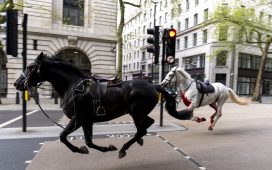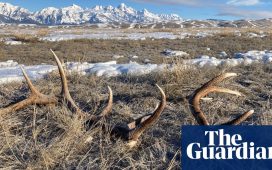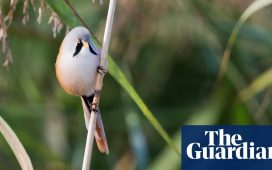The government has been developing plans to ban grouse-shooting estates from the environmentally damaging practice of burning peat bogs, a minister has told parliament.
Zac Goldsmith, a junior environment minister, said the government had been working on a law to ban the owners of estates from repeatedly burning heather on their moorlands to help boost the numbers of grouse for shooting.
Previously, the government had sought to persuade the owners of the estates to end the practice voluntarily to ward off the threat of a compulsory ban.
But this approach had been criticised by environmental campaigners who had accused the government of letting the owners of large grouse estates off the hook.
On Monday, Goldsmith told MPs that its voluntary approach had not been successful, adding legislation was now needed.
Environmentalists welcomed his statement. Guy Shrubsole, campaigner with the green group Friends of the Earth, said:”Voluntary measures to stop moorland burning have simply not worked. The government is right to say it will outlaw this outdated and damaging practice.”
“Burning on blanket bog is bad for the climate, bad for communities and bad for nature. Ministers now need to legislate for a comprehensive ban on moorland burning, with no loopholes that could let landowners off the hook.”
A mixture of aristocrats, City financiers and businesses located in offshore tax havens own the estates in England, charging clients large sums to shoot grouse, according to Friends of the Earth.
Green campaigners have opposed the practice of burning peat bogs to encourage new heather shoots – a source of food for grouse.

During Monday’s parliamentary debate, Goldsmith told MPs that the government agreed that burning peatlands was a problem. “There has been an attempt, through voluntary initiatives, to scale back — to reduce and eventually eliminate — the burning of fragile and important peat ecosystems, but that has not proven 100% successful as had been hoped. We are developing a legislative response to the problem”.
The Department for Environment, Food & Rural Affairs is unlikely to have time to bring its proposed law to parliament before the next general election.
Amanda Anderson, the director of the Moorland Association which represents the estates, said: “In our submission to the government’s consultation on heather burning over deep peat we stressed that there is a world of difference between severely damaging wildfire and careful, skilled burning.
“95% of grouse moor interests signed the voluntary commitment not to rotationally burn heather over deep peat and to only use fire as part of a carefully considered restoration action in line with current guidance.
“Grouse moors are delivering a substantial environmental benefit, particularly in terms of carbon capture on peatland, and we believe strongly that this should be taken into account by government. Between us we must find a pragmatic balance between restoration and protection from wildfire that also reduces emissions.”








